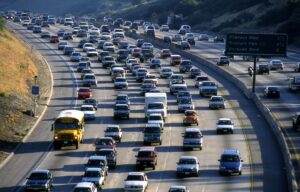I am not sure when I first heard this phrase to describe things that distract people and give them the feeling something important is happening when in fact it is meaningless. A recent article in the newly renamed greenbiz.com is exactly that. https://trellis.net/article/inside-deltas-plan-to-take-single-use-plastic-cups-off-its-flights/
Saving a few thousand pounds per year aboard the fleet of Delta’s airplanes is simply meaningless. The image improvement they believe will occur by using paper instead of plastic might be measurable, but it is also meaningless. Nowhere is Delta testing whether doing this will be deemed greenwashing by their customers … which is what I and anyone who knows something about all this is going to think.
This is a magician’s trick: create a distraction from the main event. As the article points out, 90% of Delta’s carbon footprint is fuel. That is a tough nut to crack as they found out. All the talk of biofuels fails the scale-up test, and the economics would bankrupt Delta unless and until all airlines had to use biofuels.
At least I am not reading that Delta is going to try to use hydrogen as a fuel. As my prior blogs have noted, that would be a disaster because it would produce nitrous oxides in the upper atmosphere that are 300 times more powerful as a global warming gas than carbon dioxide. Oh, you think I am nuts? Check this out: https://www.energy.gov/eere/fuelcells/does-use-hydrogen-produce-air-pollutants-such-nitrogen-oxides
Yes, fuel cells do better with hydrogen, but they are just not economic. Remember my career working for the company that developed most of them, Mechanical Technology Inc. in Lathem, NY. That was about 40 years ago, and they told everyone fuel cells were about five years off. They remain five years off from true commercial realities.
Recent blogs on the failures in the solar and wind industry should be a wake-up call, but don’t be surprised that the news cycle fails to cover this. Delta is making a big deal of something that is just not substantive, even in the minds of consumers. Eliminating single-use plastic water bottles is much more important. Delta can recycle their plastic cups.
Sorry to those who dislike the word fart. Get over it. It is a natural process in the human body. It also reflects what you eat and how healthy you are. Therefore, being able to smell them is beneficial feedback.
There is a reason the phrase is derisive. Delta deserves to be criticized for this attempted greenwashing. It stinketh greatly!



